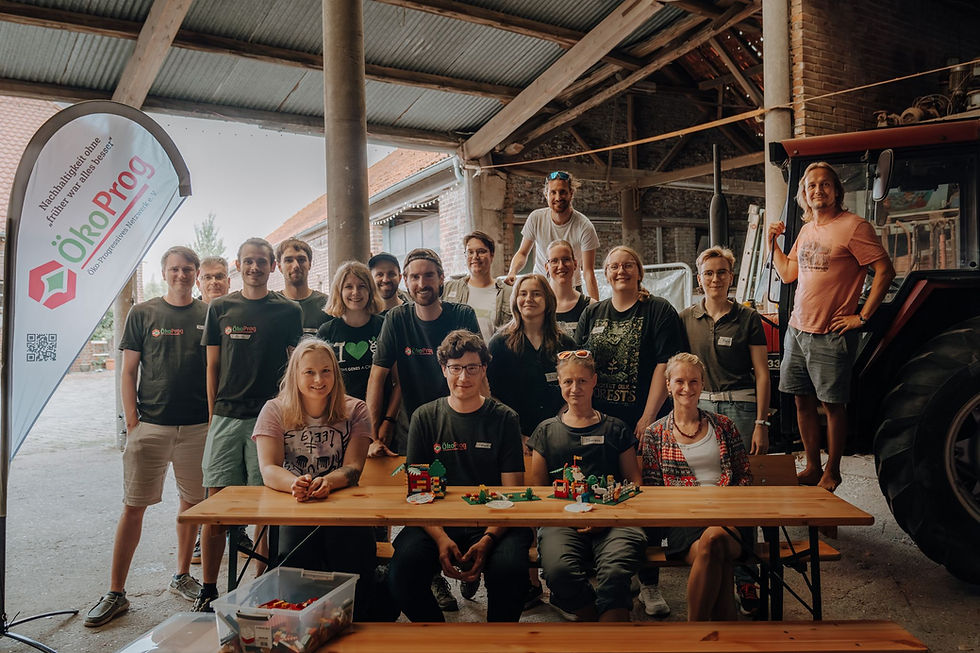Czech Farmer Cluster FEAST Workshop
- Taskscape Associates
- Jun 8, 2025
- 3 min read
Updated: Jul 3, 2025
Online Workshop brings together farmers, advisors, and ornithologists to explore innovative habitat assessment...

On June 3rd, 2025, the FRAMEwork project's Velké Hostěrádky Farmer Cluster hosted an engaging online workshop that brought together Czech farmers, agricultural advisors, and ornithologists to explore how modern technology can support wildlife conservation on local farmland. The session, led by Farmer cluster Facilitator Jan Trávníček from Czech Organics and John Tzilivakis from the University of Hertfordshire, focused on demonstrating the FEAST (Farm Ecosystem Assessment Support Tool) and its application for habitats.
The workshop was conducted in English with consecutive Czech translation, ensuring accessibility for all participants. This bilingual approach proved essential for engaging the local farming community who ultimately implement habitat improvements on the ground. It was great to hold an event with on-the-ground stakeholders, ahead of a webinar introducing the tool to international researchers, NGOs and policymakers.
Both webinars were organised as part of an event series sharing key resources available on the project's online knowledge, action and legacy platform Recodo.

Understanding FEAST: From Theory to Practice
John Tzilivakis opened the technical portion of the workshop with a comprehensive introduction to the FEAST tool. Over 15 minutes, he explained how this decision-support system works, covering:
The types of data inputs required for analysis
How the tool calculates its Habitat Suitability Index
The scientific basis for assessing wildlife habitat quality
What made this introduction particularly effective was the integration of grey partridge habitat requirements directly into the explanation of how FEAST works, creating a seamless link between the theoretical framework and its practical application in local areas.
The Ekofarma PROBIO Case Study
The heart of the workshop was a 30-minute demonstration using real data from Ekofarma PROBIO. John Tzilivakis walked participants through the software, showing how adjusting different land management options within the tool could improve habitat suitability scores.
The case study revealed specific insights about the farm:
A spatial analysis showing the distribution of suitable habitats across the farm
Identification of critical weaknesses, particularly the lack of overwintering areas in the western portion of the property
Concrete management recommendations including the introduction of winter stubbles, field margins, biostrips and strategic fallow areas
The visual nature of the tool, with its maps and clear scoring system, helped participants understand how their management decisions directly impact habitat quality. This case study was chosen after unsucessful attempts to reintroduce Grey Partridges to the area, prior to the FRAMEwork project.

A Collaborative Discussion
The final portion of the workshop featured a lively 25-minute discussion that brought together different perspectives:
Farmers and advisors provided crucial feedback on the practicality of implementing the suggested measures, discussing real-world constraints such as economics, labor availability, and integration with existing farming operations.
Ornithologists offered valuable insights on the modeling assumptions used in FEAST and the accuracy of the habitat mapping, drawing on their field experience with grey partridge populations in the Czech Republic.
This exchange highlighted one of the workshop's key strengths: bringing together technological innovation with local knowledge and practical experience.
Looking Forward
The workshop successfully demonstrated how tools like FEAST can bridge the gap between conservation science and practical farm management. Participants expressed interest in:
Testing the tool on their own farms
Exploring its application for other wildlife species
Participating in follow-up sessions to refine management recommendations
As biodiversity loss continues to challenge agricultural landscapes across Europe, workshops like this show how technology, when combined with farmer engagement and ecological expertise, can offer practical pathways toward more nature friendly farming.
The FRAMEwork project's approach, making sophisticated habitat assessment tools accessible to farmers while incorporating their feedback, represents an important model for agricultural conservation initiatives. By focusing on a beloved but declining species like the grey partridge, the workshop connected technical innovation with a conservation challenge that resonated with the rural community. You can learn more about FEAST here.



